The year is almost over. Christmas rhymes sound around the world, and it is harder and harder to do quality work. So let’s have some fun and play with numbers.
There were more than 1000 workshops registered and promoted via Workshop Butler in 2017. We decided to look at the feedback provided by attendees of the workshops and see if there are any differences in how participants evaluate trainers in different countries and languages.
Data
We used 1805 evaluations from 2850 attendees of 731 paid public workshops. Each attendee answered several questions, two of which are important to us:
- General impression of the trainer/facilitator
- How likely are you to recommend this event to others?
Both questions have a set of predefined answers, rated from 0 to 10 (0 is the worst, 10 is the best). We will call the answers to the first question reviews, and the answers to the second question — NPS.
We didn’t clean any data. It means that there were some test records. Their number is small, and we count them as statistically irrelevant. After all, we’re not doing a proper scientific research.
We also understand that 1805 evaluations are not a significant sample, and it’s not distributed evenly among all countries. We have the highest number of evaluations from Europe, North and South Americas. For Africa, Asia and Oceania we will look only at overall scores, without digging into the specific, as we don’t have enough data for that.
Reviews by geo
We want to start with the question, Are people from some countries more generous to trainers than people from other countries?
First, let’s look at the high-level picture and compare different regions of the world.
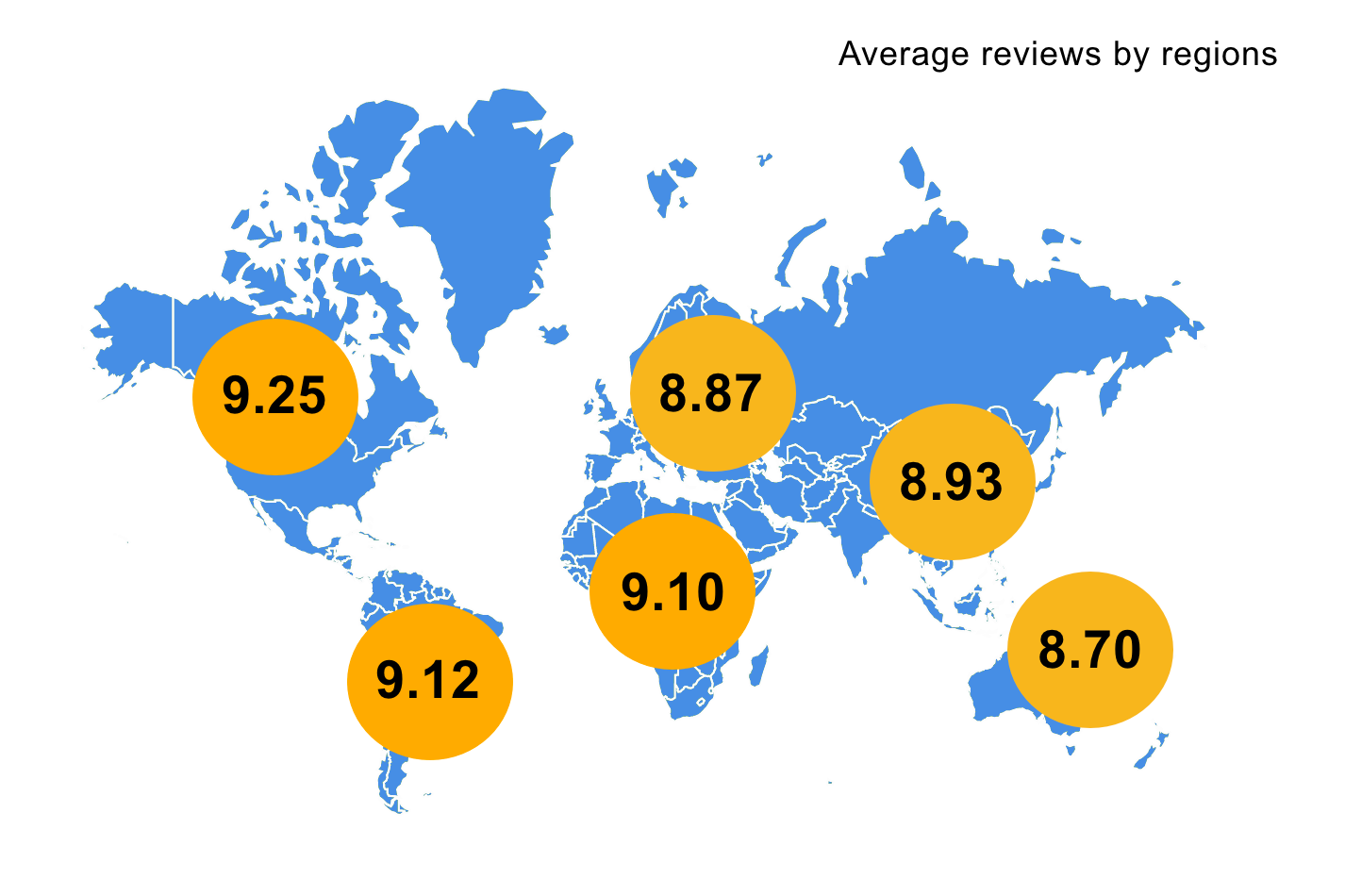
North Americans give the highest reviews, folks from Australia and New Zealand — the lowest.
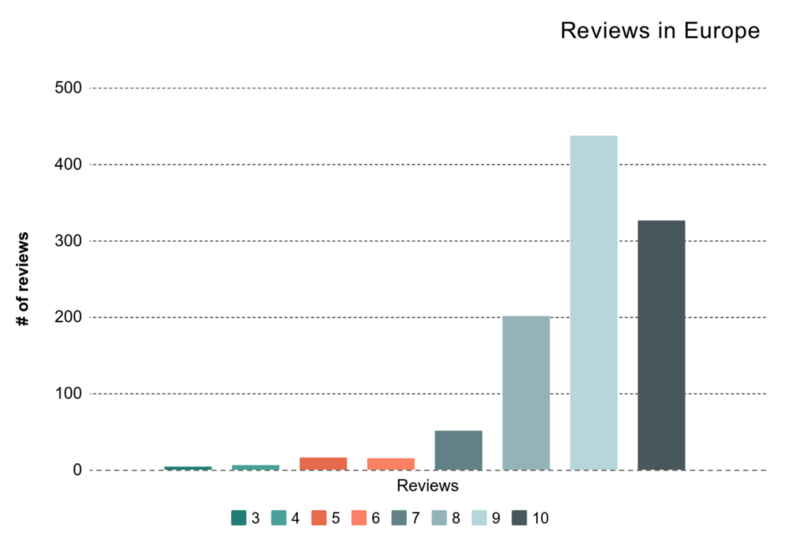
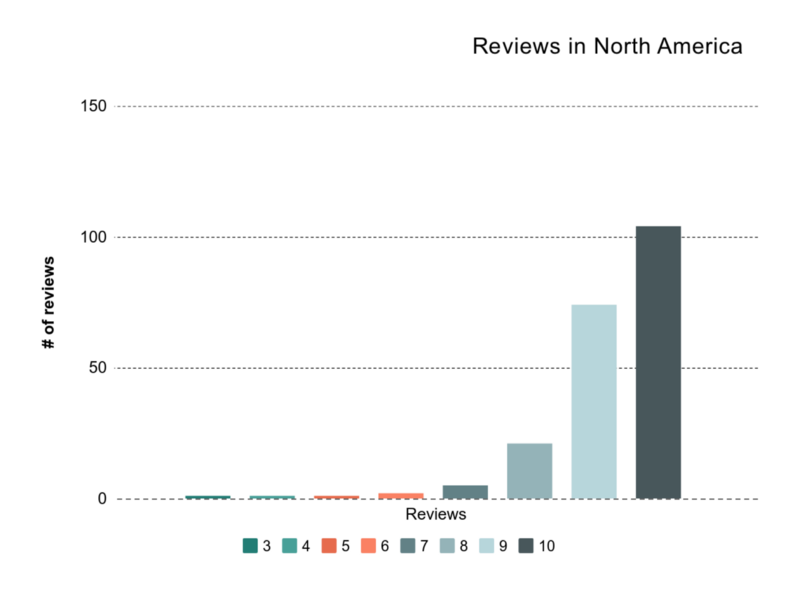
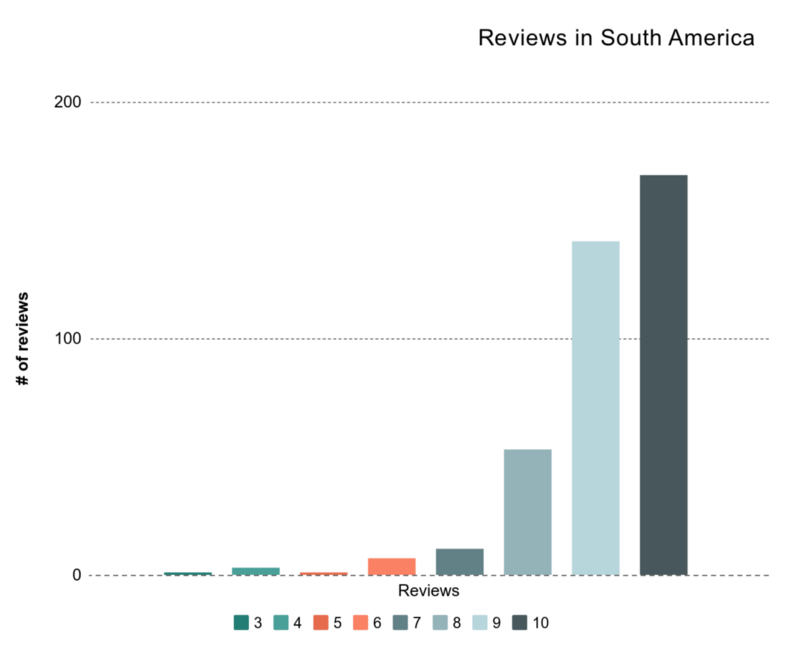
While the Americans tend to say, “It was the best experience in my life!”, the Europeans prefer a more moderate tone, “It was great. However, there is still a place for improvement”.
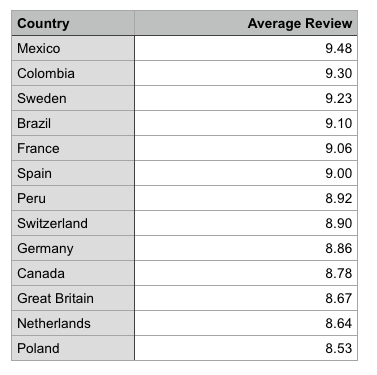
Mexico is the best place to collect testimonials for showing off on your professional profile. If it’s too far, and you don’t know Spanish, consider Sweden. This Nordic nation holds the first place in Europe which is a surprise to us.
Polish people are the most demanding ones on this list. Unfortunately, it’s the only country in Eastern Europe from where we have enough data.
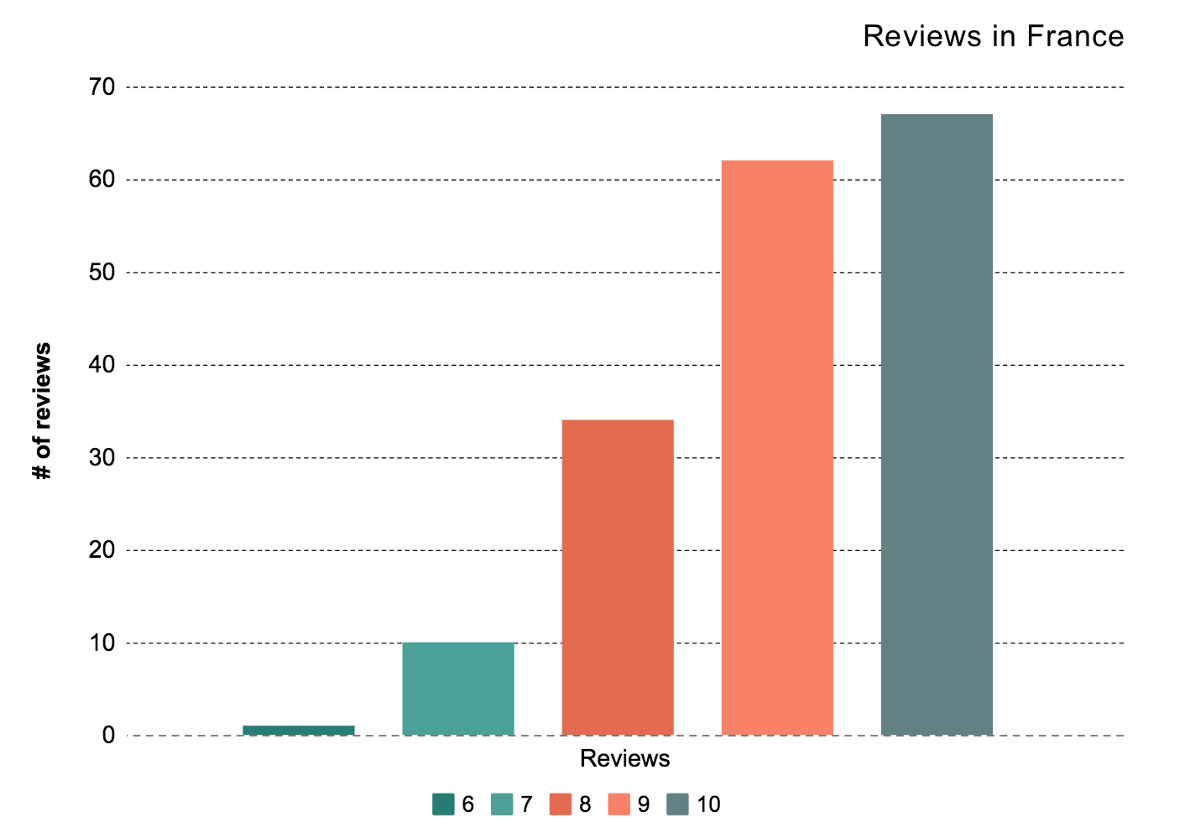
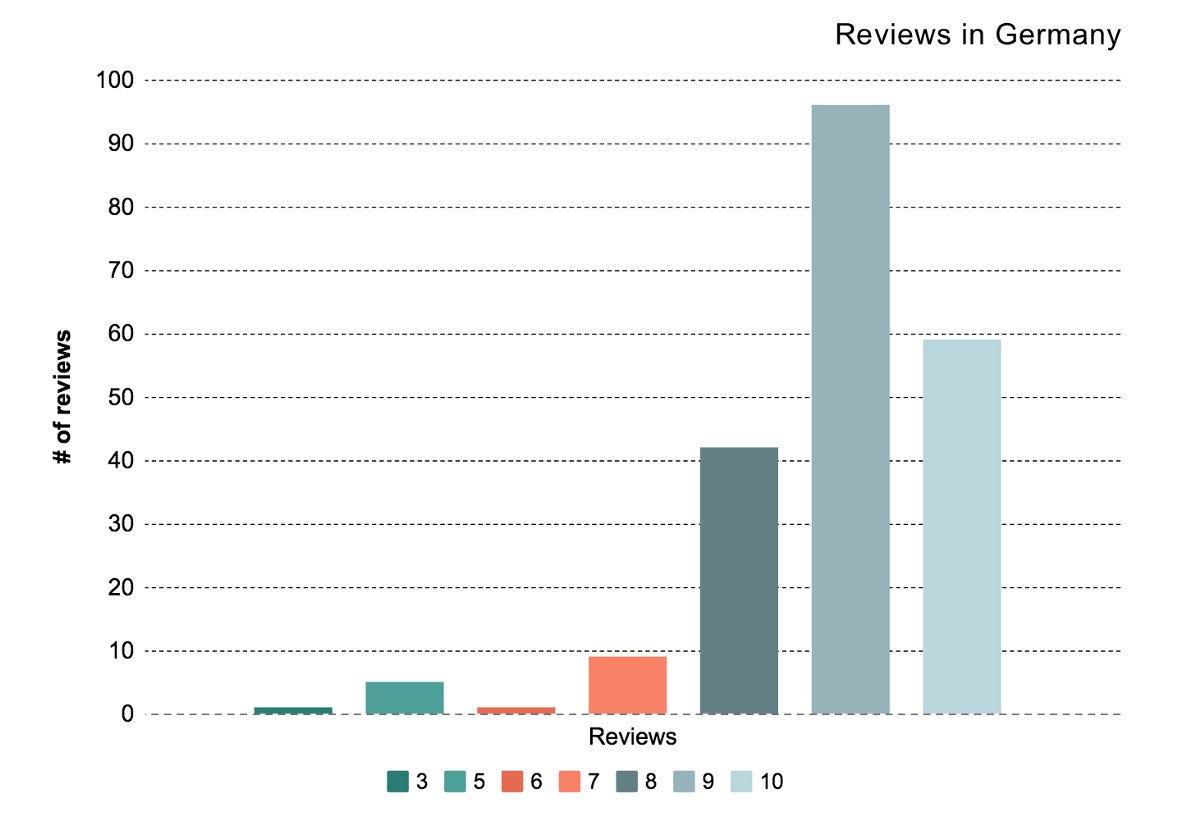
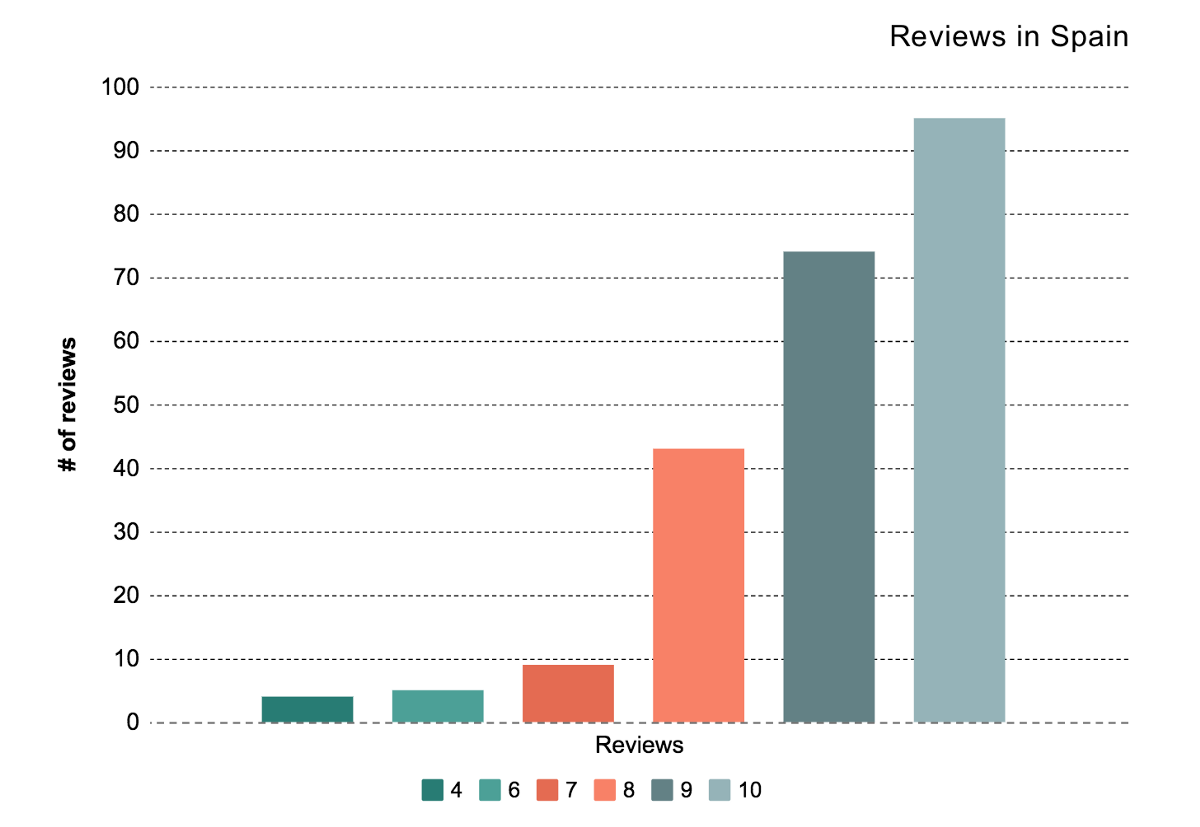
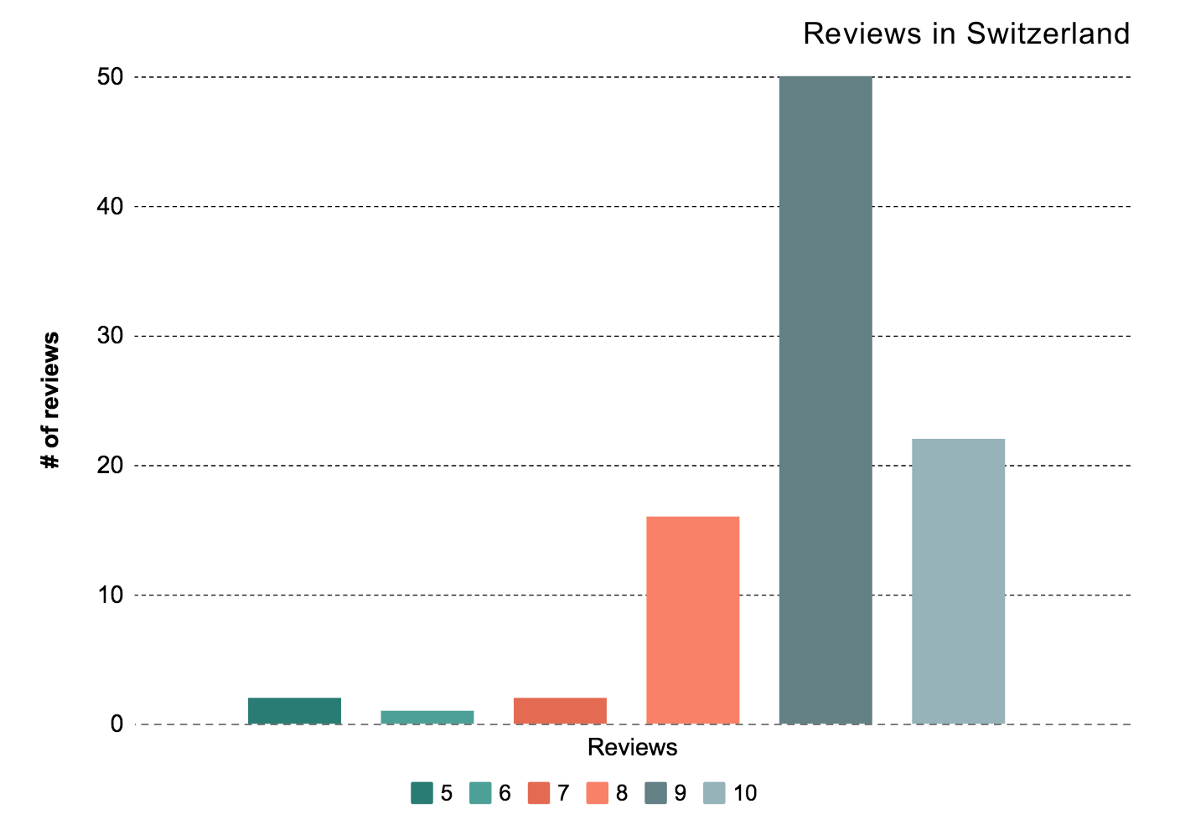
The distribution of reviews from France shows the shortest tail. Only a couple of attendees rated their experience as “Above average”, others found it “Good” or better. If you are in Germany or Switzerland, be happy when you get 10 out of 10. It means you impressed a participant, as they usually prefer to give 8 or 9.

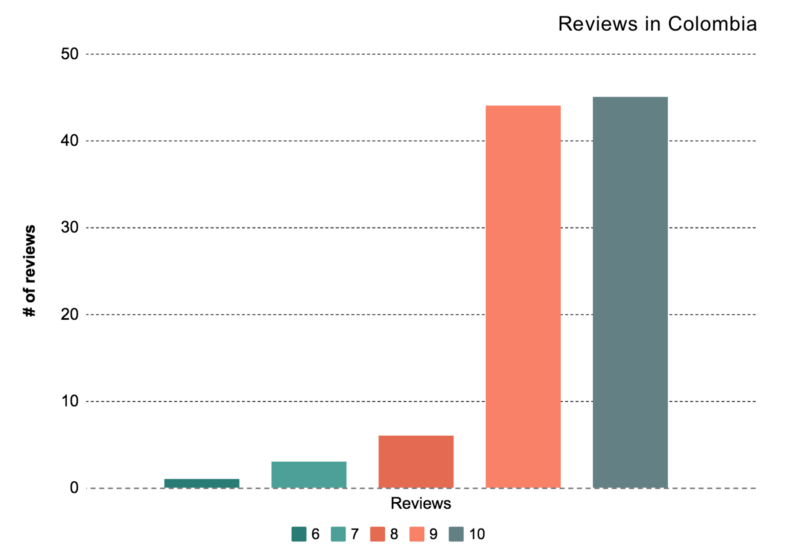
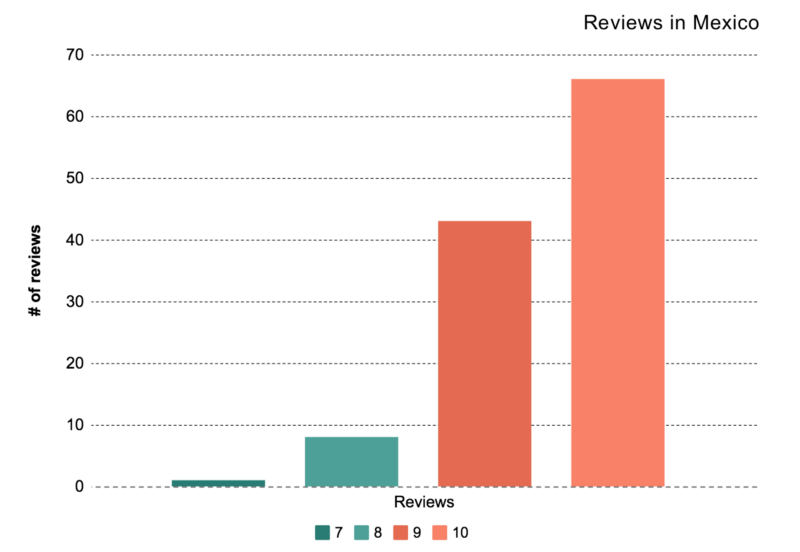
The words about France are even more relevant for Mexico. No surprise, it took the prize for the most review-generous country in our research.
NPS by geo
We looked at how attendees from different countries rate trainers. It’s time to see if they are ready to recommend workshops to their colleagues and friends. For that, we calculate Net Promoter Score based on answers from the second question.
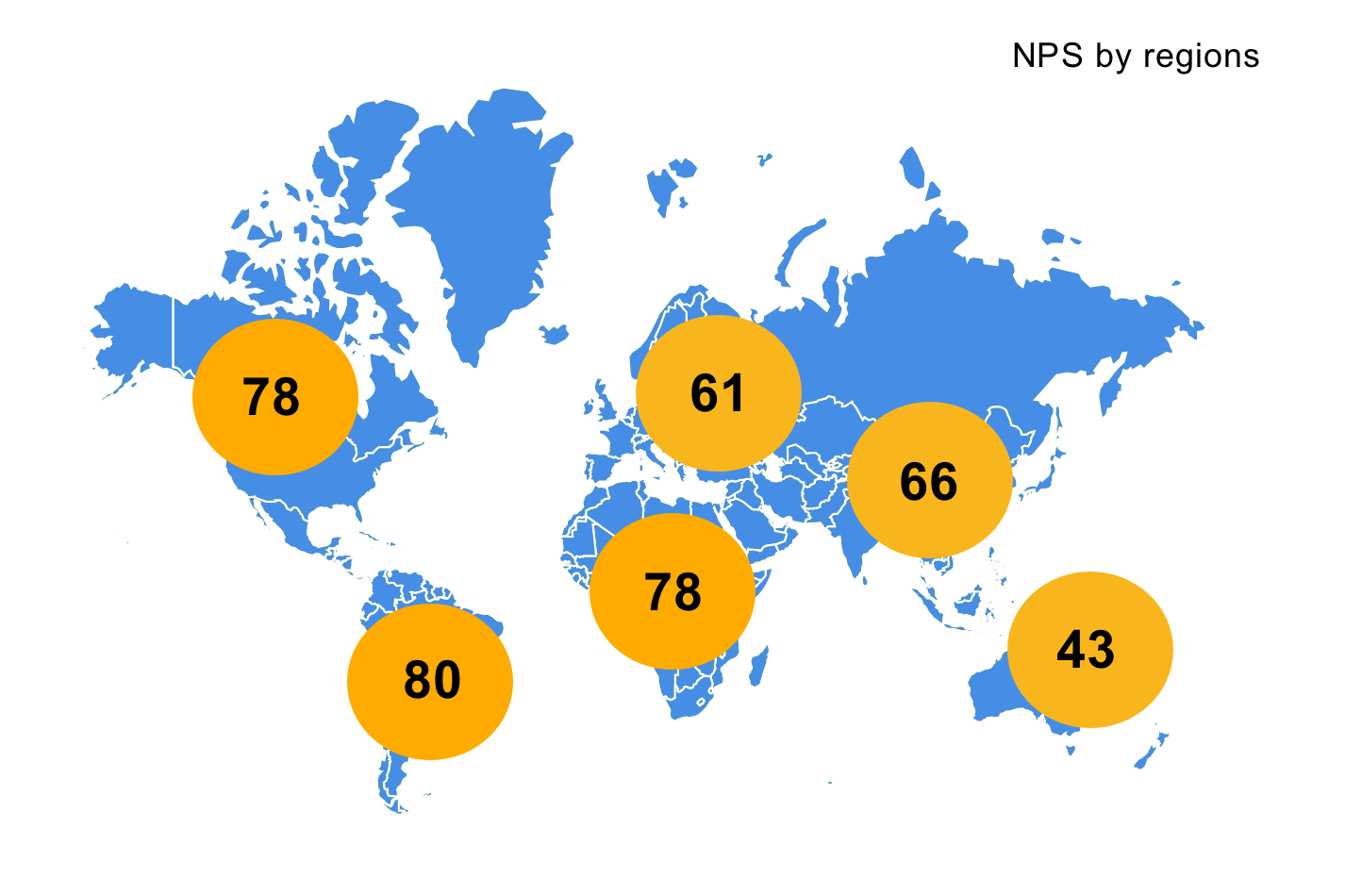
Here we see a big contrast to the average ratings. To ease the comparison, we put both the average reviews and NPS side by side.
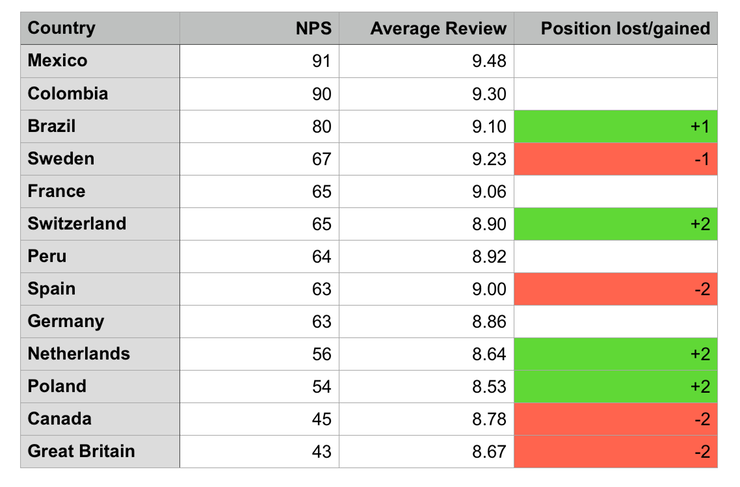
Though it looks like Sweden lost just one position, the difference in NPS between it and Brazil is 13 points. The difference in average reviews for the Netherlands and Great Britain is only 0.03, but there is 13 points divide in NPS.
Conclusion
Attendees from Latin America are more likely to recommend your workshops and give higher reviews. Mexico is the most accessible country to build your reputation as a trainer, with Colombia is not far behind.
Before we started working on this article, we had a more general assumption that Spanish-speaking attendees are the most generous ones. The results proved us wrong, as Spain is in line with other European countries.
To our surprise, Sweden gets the highest score in Europe. As the knowledge of English language is considered a norm there, it seems to be an attractive market for a foreign trainer. Especially comparing to France, which takes the second place but the language is an entry barrier.
It would be interesting to learn if people in different countries listen to the recommendations of their friends and colleagues. In this case, we can get a better picture, combining these data with our NPS results. For example, participants in Brazil are almost twice more likely to recommend a course than participants in the UK. However, it doesn’t matter if English people prefer to read reviews, not to listen to the recommendations. If you know about such research, please, share the link with us.
Feel free to leave the comment or suggest an idea for another article like this one. We love to hear any feedback.
